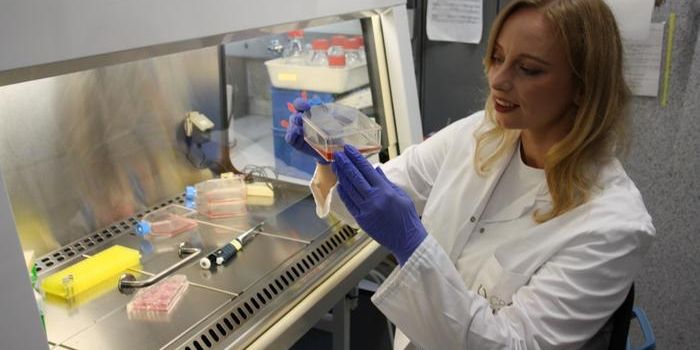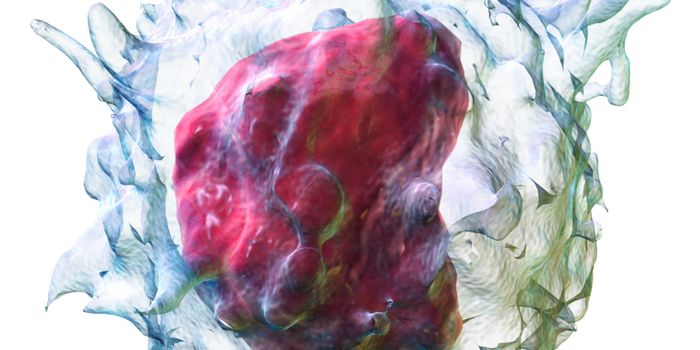Promising New Cancer Drug May Kill Cancer Cells with Minimal Side Effects
An exciting new cancer drug has recently entered into a phase 1 clinical trial supported by promising pre-clinical work. The drug, named AOH1996, targets a protein called proliferating cell nuclear antigen (PCNA), an essential player in the biological processes of DNA replication and repair. A team of researchers from City of Hope published the data describing how they identified and characterized AOH1996 in Cell Chemical Biology last week. Since then, the news of AOH1996 has appeared prominently in both scientific and mainstream media.
Using a rational drug design approach that develops drugs based on their specific biological targets, the researchers identified AOH1996. Lead researcher Linda Malkas named the drug after Anna Oliva Healey, a girl born in 1996 who succumbed to neuroblastoma at age 9.
In the laboratory, the researchers tested AOH1996 on over 70 different kinds of tumor cells as well as some healthy control cells. While the drug killed the cancer cells, it notably does not affect non-cancer cells, including blood cells and the cells lining the airway. This indicates AOH1996 as a selective drug that will suppress tumor growth but likely not cause adverse effects that can occur when a cancer drug damages healthy cells.
As an inhibitor of PCNA, AOH1996 can kill cancer cells. When administered in mouse models of human breast, lung, and brain cancer, AOH1996 suppressed tumor growth. In addition, when researchers combined AOH1996 with chemotherapy, they observed significantly longer survival of the tumor-bearing mice.
Some of AOH1996’s unique properties make it a feasible option for cancer treatment. Importantly, AOH1996 is administrated orally, making it relatively simple and non-invasive for patients. Further, AOH1996 is a metabolically stable drug, indicating a favorable time during which the drug is absorbed and distributed.
Orally administrable and metabolically stable, AOH1996 suppresses tumor growth as a monotherapy or as a combination treatment but causes no discernable side effects. Inhibitors of transcription replication conflict resolution may provide a new and unique therapeutic avenue for exploiting this cancer-selective vulnerability.
The study concludes that AOH1996 stops tumor growth when administered alone or in combination with chemotherapy with minimal anticipated side effects. Based on these data, the the drug has entered a Phase 1 clinical trial taking place at City of Hope Medical Center (Duarte, California) and HonorHealth Research Institute (Scottsdale, Arizona).
Sources: Cell Chem Biol, Science, Curr Med Chem, Clin Pharmacokinet









